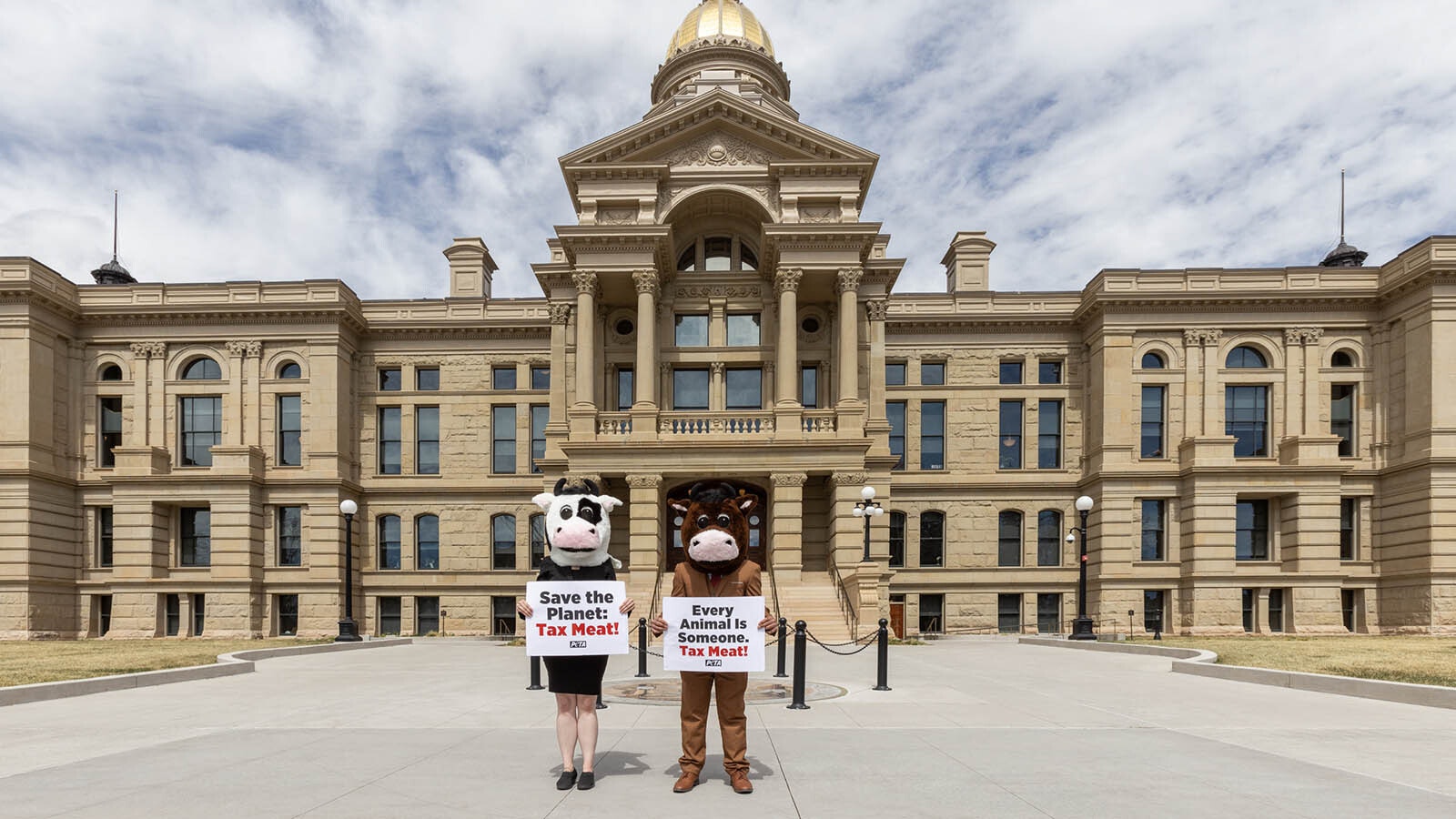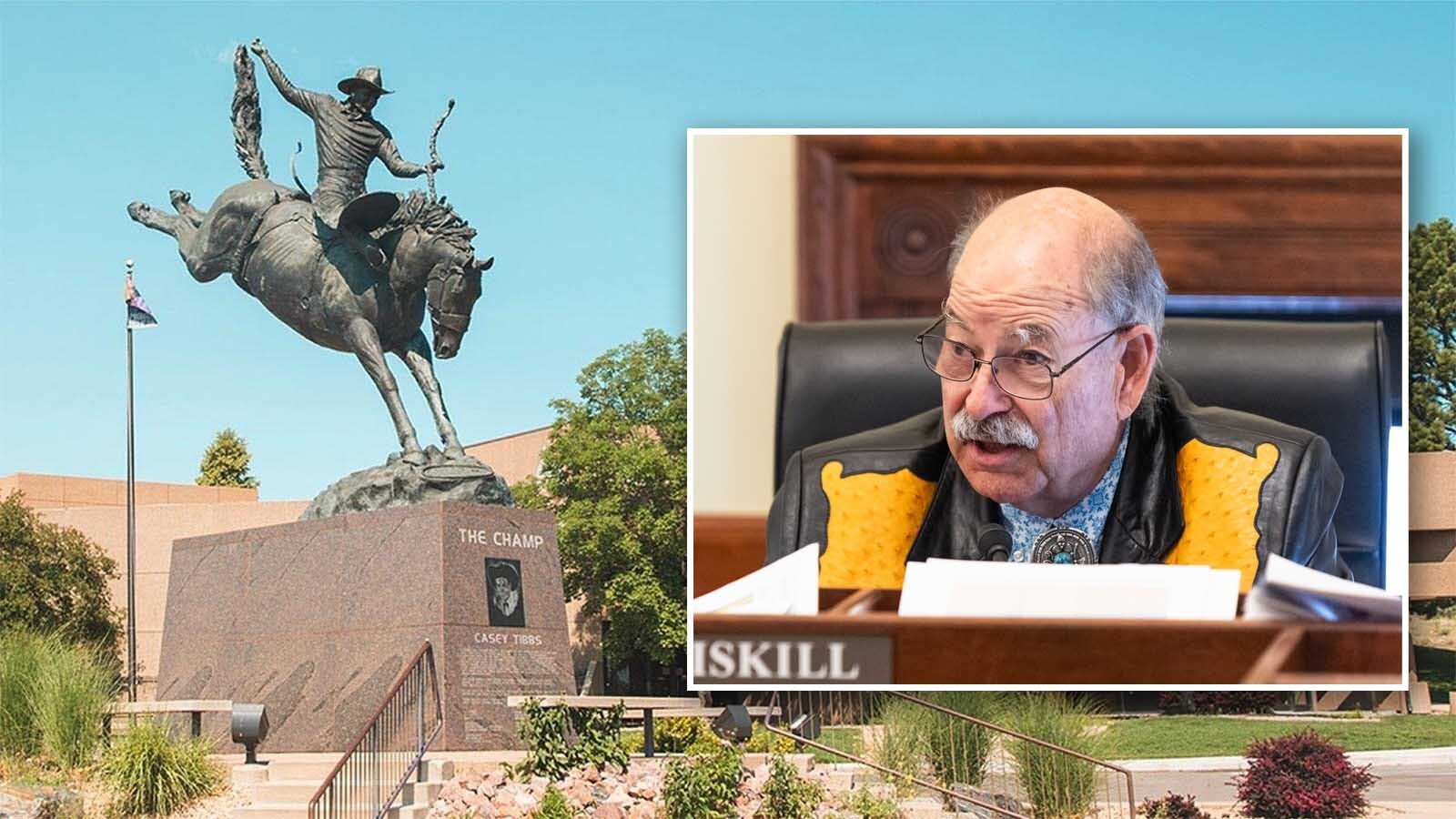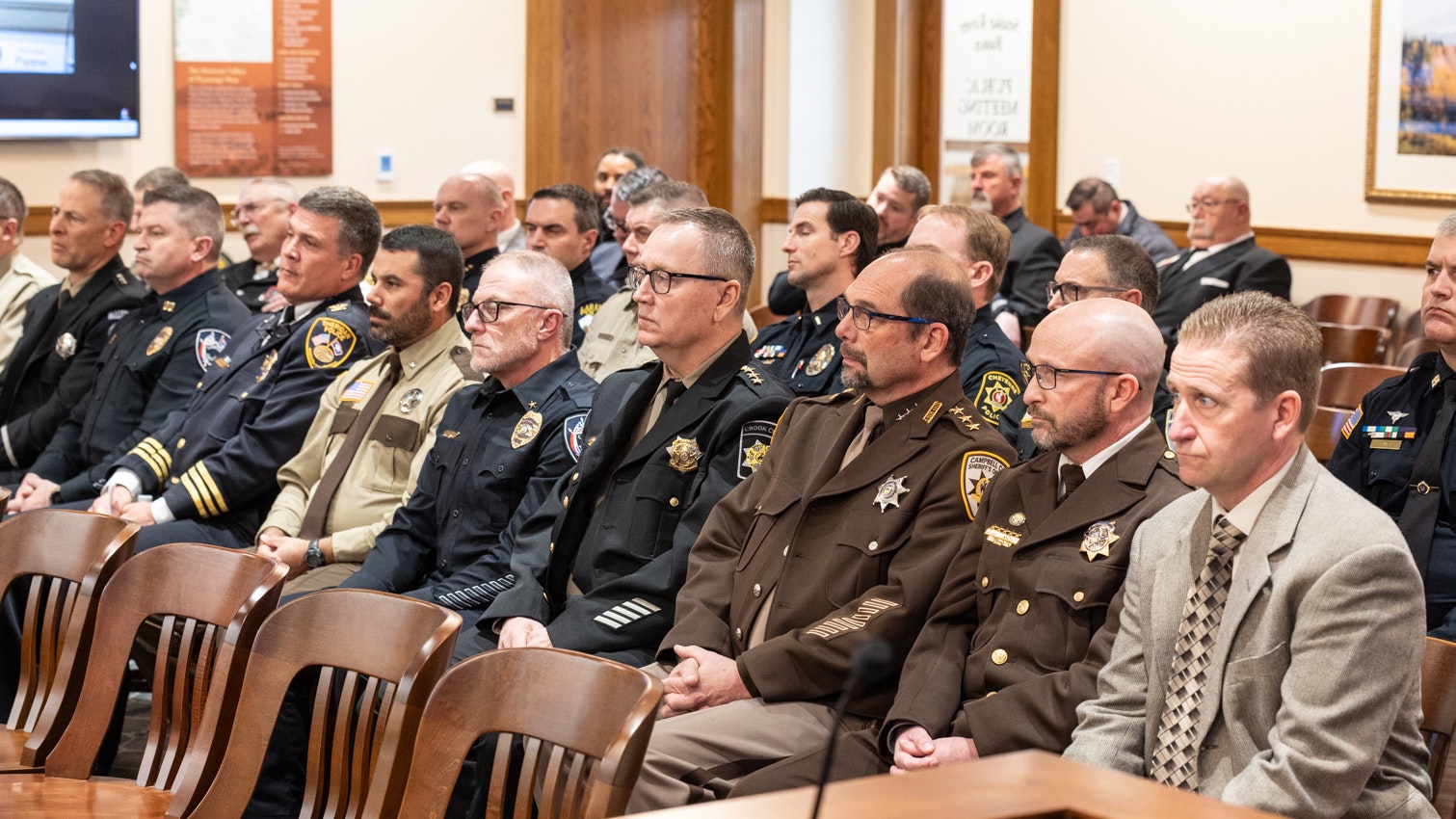CHEYENNE — A pair of cows had plenty of space to graze around the state Capitol grounds Monday when People for the Ethical Treatment of Animals (PETA) rallied for a meat tax in Wyoming.
That’s because no one showed up for the protest where PETA called on Gov. Mark Gordon to push for the state to tax all meat in Wyoming to compensate for the alleged negative impacts cattle have on climate change.
It’s a tough ask in a deeply red state widely known for its ranching heritage and cattle production.
The cows were humans with PETA dressed in cow costumes, holding signs reading “Save the Planet: Tax Meat!” and “Every Animal Is Someone. Tax Meat!” Except for two other rally-goers with the group, nobody showed up to support their effort, or counterprotest.
Some attempts the protestors made to hand out leaflets to passersby were rejected or ignored.
Asked to respond to the PETA plea for a meat tax, a spokesman for the governor pointed out there were only four people at the protest.
Also Gordon, who owns a ranch where he raises cattle, has never publicly endorsed or expressed any interest in taxing meat, or any animal-related approach to addressing climate change.
“The governor is a proud rancher and supporter of producers and the beef industry,” said Gordon spokesperson Michael Pearlman.
Rather, Gordon has expressed support for an “all-of-the-above” energy policy that continues to support Wyoming’s legacy industries like coal and oil, while also investing in green energies like wind, solar and carbon capture.
Even that stance has drawn the ire of some Republicans in the state.
None of the four protestors at Monday’s event are Wyoming residents. Two are from nearby Colorado. Another who's a Florida resident said her group is headed to Boulder next for a rally about a different topic.
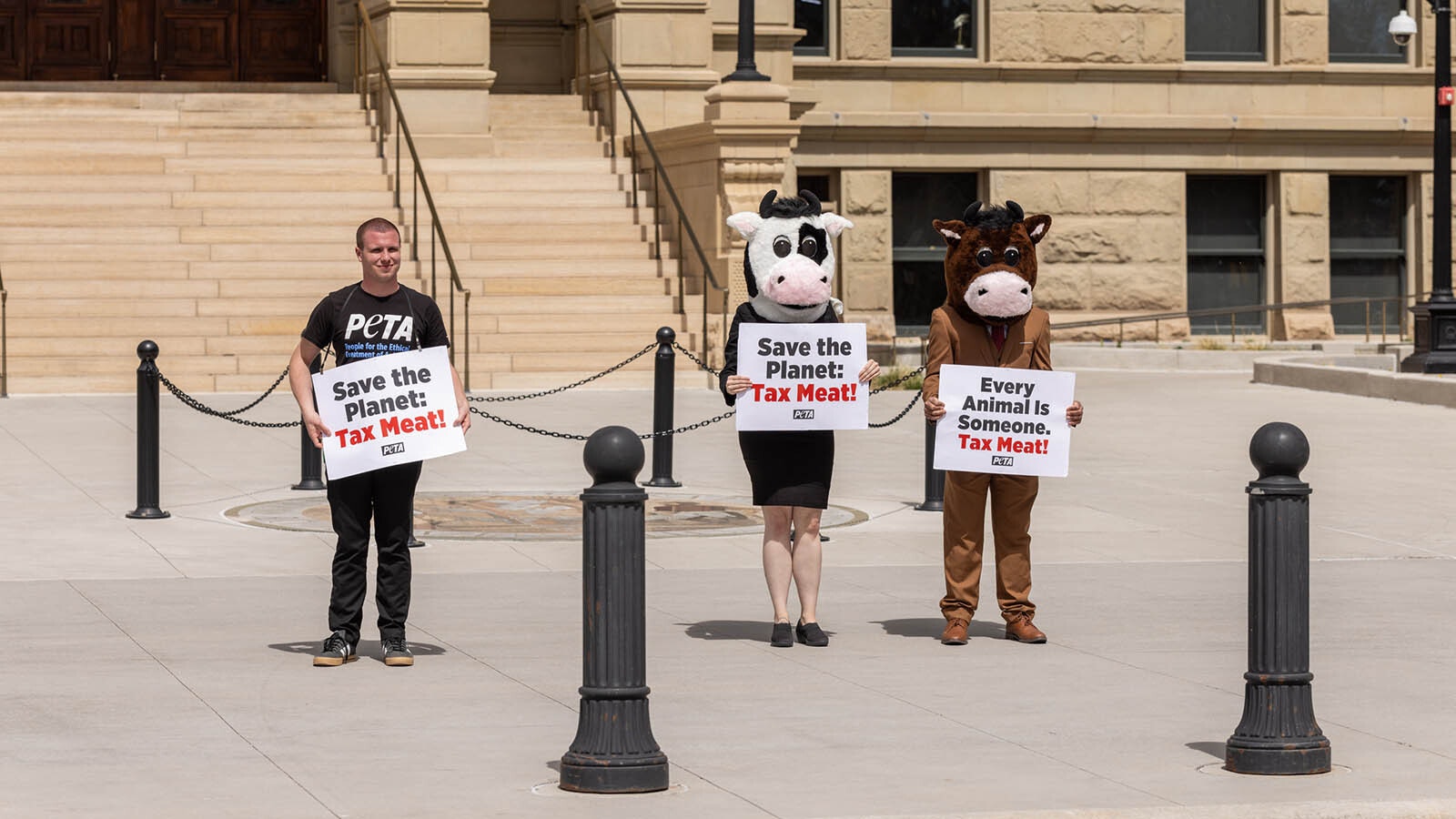
Major Industry For Wyoming
Jim Magagna, executive vice president of the Wyoming Stock Growers Association, described Monday’s event as ridiculous considering Wyoming’s deep ranching culture and heritage.
“It is, given our history and role of producing animal agriculture,” he said.
Amanda Brody, a senior campaigner with PETA, said the rally was held as a direct response to Gordon’s push to reduce Wyoming’s carbon output in an effort to fight climate change. She also argued it could be a great way for the state to raise more revenue.
“That’s really impossible without addressing the devastating effects of animal agriculture,” Brody said. “We’re urging Governor Gordon to put a tax on meat to address the devastating effects that it has on public health and the climate catastrophe.”
According to the Environmental Protection Agency, researchers have found that 37% of all methane emissions from human activity are the direct result of livestock and agricultural practices, and Brody said animal agriculture creates 18% of all greenhouse emissions, more than all the world’s transportation systems combined.
The U.S. Department of Agriculture reported that as of Jan. 1, 2023, there were 1.24 million head of cattle in Wyoming, more than twice the state’s human population.
The National Cattlemen’s Beef Association reports there are more than 5,700 cattle farms and ranches in Wyoming.
A 2023 University of Wyoming study also found that cattle ranching contributed $1.03 billion to Wyoming’s economy in 2021, and accounted for 77% of the state’s total agriculture industry. The report found that associated industries feed and fencing contributed another $476 million to the state’s economy and household spending related to the agriculture industry generated another $338 million.
Magagna said not only has ranching agriculture benefited those who work with it and consume it, but it also has shaped the Wyoming landscape its residents know today. He said the ranching industry has kept many public and private lands open and undeveloped that might otherwise be sold off for commercial development.
“Rural agriculture has really kept Wyoming the way it’s been with benefits for recreation, tourism and the economy,” he said.
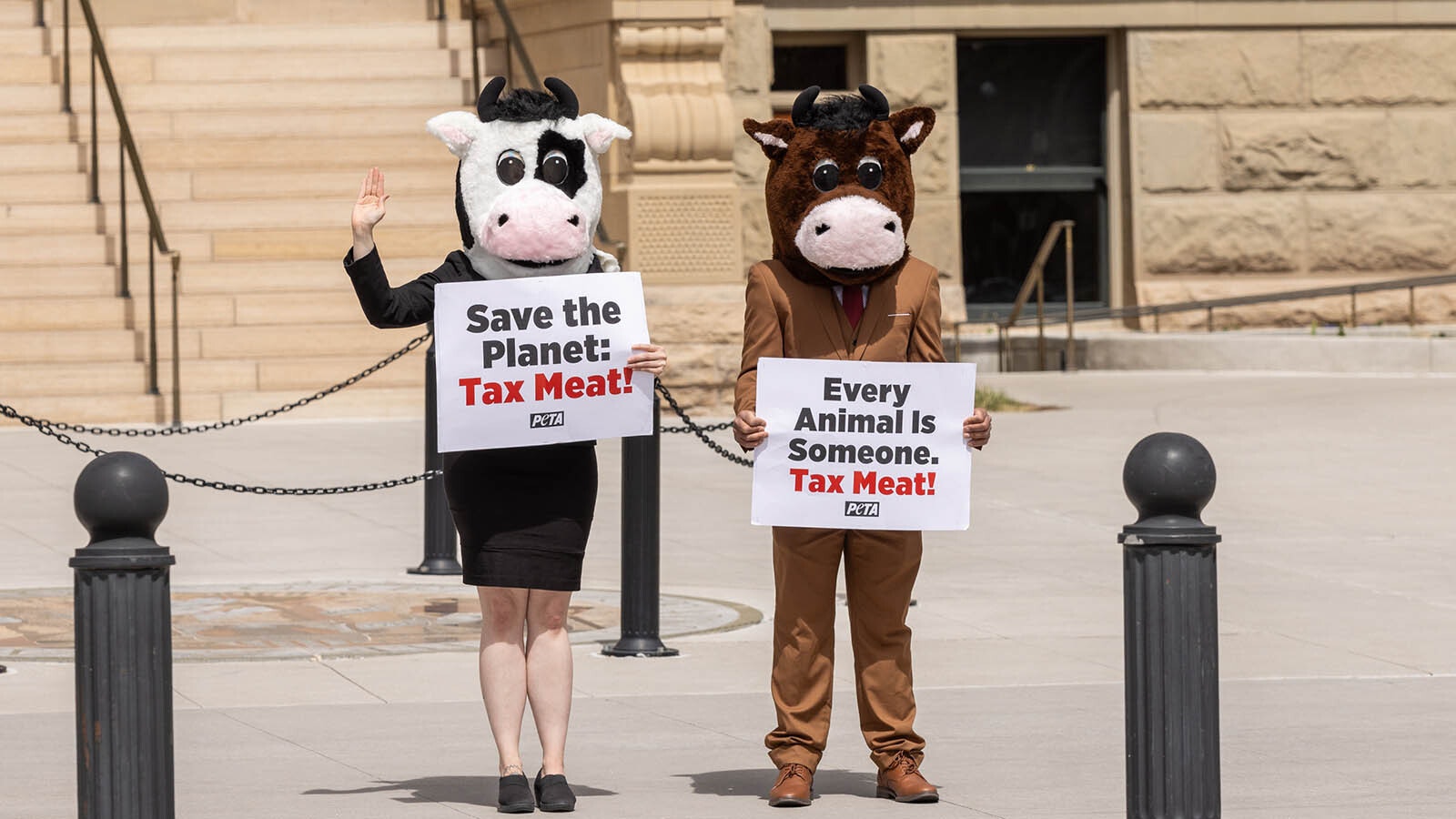
‘Foolishness’
Brody said revenues raised from the meat tax — some have suggested it should be as high as 10% — could be given to cattle ranchers to incentivize them to shift their business practices and/or low-income families to help provide them more access to affordable vegetarian food options like rice and beans.
She mentioned how Tyson Foods now has a vegan line of “burgers” and “sausages” and Kraft is now putting out dairy-free mac and cheese.
“So, we know that consumers are choosing vegan options, whether they’re Republican or Democrat or somewhere in the middle,” she said.
Brody also said it’s not an outlandish proposal considering alcohol and tobacco are already taxed.
Magagna said a meat tax would devastate Wyoming’s stock growers and the state’s overall economy.
“It’s foolishness,” he said. “It’s so unrealistic it’s hard to respond to.”
Leo Wolfson can be reached at leo@cowboystatedaily.com.

